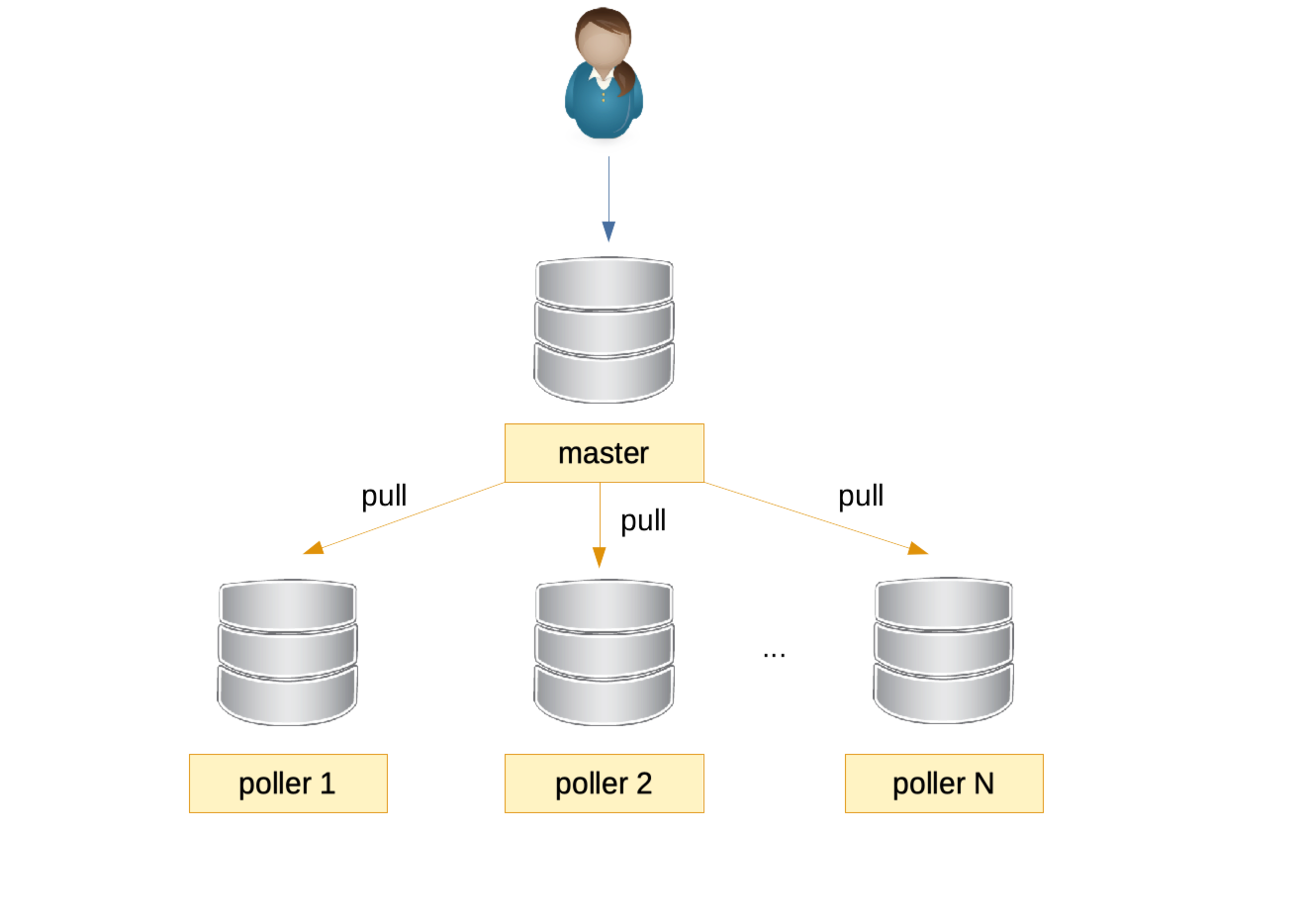This page provides a brief overview of the major changes between opHA3 releases.
Introduction
The master is the node that have the information of all the pollers and it is where we can read all the information. The pollers, collect their own data, and send that information to the master when it is requested.
The process of synchronising the information of the nodes it is made by the master. The master request the information for each poller with pull requests.
The first time the script runs, it is going to request all the data for each configured poller. Next time, it is going to request only the modified data since the last synchronisation.
3.0.4 Beta
- Support for NMIS 9 to show poller nodes from the master.
3.0.3 Beta
- Support for node deletion on the pollers. When a node was deleted on the poller, all this data wasn’t remove on the master. Now the pull process is going to remove nodes and associated data that was removed on the poller.
- Retry policy on pull failures: If there was a failure during the poller update, the pull finished. Now it is possible to specify a retry policy:
- retry number: How many times retry a request before finish the process unsuccessfully. 3 is the default value.
- delay: How many seconds is going to wait between retries (5 seconds by default).
- It is possible to modify this params in opCommon.nmis:
'opha_transfer_chunks' => {
'inventory' => 500,
'nodes' => 500,
'events' => 500,
'status' => 500,
'latest_data' => 500,
'retry_number' => 3,
'delay' => 5
},
Note that if no option is specified, there is not going to do any retry.
Also, note that if a poller is down, the process is going to take retry_number * delay seconds to finish.
- Show the registry synchronised data on the GUI.
- Small improvements on the GUI.
3.0.2-1 Beta
Hot fix to solve the problem of visualise the nodes graphics of the poller from the master.
3.0.2 Beta
On this version, the master is going to request the information by chunks. The number of calls is based on the chunk size and the number of results. The chunk size can be modified on conf/opCommon.nmis on the poller, with the next parameter (Note that a service restart is needed to use the new parameters):
|
- The configured pollers can be seen/modified on this page: http://master/en/omk/opHA/peers/
You can see how many calls is going to perform for each peer doing this request to that poller: http://poller/en/omk/opHA/api/v1/chunks
By default, all the data types are enabled, so all the data types are being synchronised (nodes, inventory, events, latest_data and status).
The synchronisation is configured in a cron job, that is going to run /usr/local/omk/bin/opha-cli.pl act=pull. For debugging purposes, you can run the same script with the following parameters:
|
And using force=true to bring all the data again, not only the data modified or created since the last synchronisation.
You should see something like this when the script es finished:
|
